63 start with G start with G
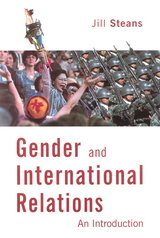
Until relatively recently, little had been written about gender issues in international relations despite the increased importance of the study of gender in other areas of the social sciences. Gender and International Relations fills that gap, providing a clear and accessible guide to the study of gender issues, feminist theories, and international relations. Steans illustrates how gender is central to nationalisms and political identity, the state, citizenship and conceptions of political community, security, and global political economy and development. Drawing on feminist scholarship from across the social sciences, she demonstrates the uses of feminism as critique. She also introduces readers to contemporary theoretical debates in international relations using concrete concerns and easily understandable issues to ground the discussion.
The book does not construct a single feminist theory of international relations nor does it advance a particular perspective of how gender can best be understood in an international or global context. Rather, the book argues that feminist theories have collectively produced insights crucial to the study of international relations and that these insights can be used to challenge conventional approaches to the discipline.

Until relatively recently, little had been written about gender issues in international relations despite the increased importance of the study of gender in other areas of the social sciences. Gender and International Relations fills that gap, providing a clear and accessible guide to the study of gender issues, feminist theories, and international relations. Steans illustrates how gender is central to nationalisms and political identity, the state, citizenship and conceptions of political community, security, and global political economy and development. Drawing on feminist scholarship from across the social sciences, she demonstrates the uses of feminism as critique. She also introduces readers to contemporary theoretical debates in international relations using concrete concerns and easily understandable issues to ground the discussion.
The book does not construct a single feminist theory of international relations nor does it advance a particular perspective of how gender can best be understood in an international or global context. Rather, the book argues that feminist theories have collectively produced insights crucial to the study of international relations and that these insights can be used to challenge conventional approaches to the discipline.
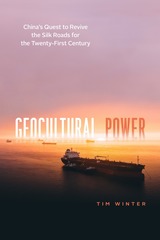
Geocultural Power explores this question by considering how China is couching its strategy for building trade, foreign relations, and energy and political security in an evocative topography of history. Until now Belt and Road has been discussed as a geopolitical and geoeconomic project. This book introduces geocultural power to the analysis of international affairs. Tim Winter highlights how many countries—including Iran, Sri Lanka, Kenya, Malaysia, Indonesia, Pakistan, and others—are revisiting their histories to find points of diplomatic and cultural connection. Through the revived Silk Roads, China becomes the new author of Eurasian history and the architect of the bridge between East and West. In a diplomatic dance of forgetting, episodes of violence, invasion, and bloodshed are left behind for a language of history and heritage that crosses borders in ways that further the trade ambitions of an increasingly networked China-driven economy.

Geopolitical Economy radically reinterprets the historical evolution of the world order, as a multi-polar world emerges from the dust of the financial and economic crisis.
Radhika Desai offers a radical critique of the theories of US hegemony, globalisation and empire which dominate academic international political economy and international relations, revealing their ideological origins in successive failed US attempts at world dominance through the dollar.
Desai revitalizes revolutionary intellectual traditions which combine class and national perspectives on ‘the relations of producing nations’. At a time of global upheavals and profound shifts in the distribution of world power, Geopolitical Economy forges a vivid and compelling account of the historical processes which are shaping the contemporary international order.

Geopolitical Exotica examines exoticized Western representations of Tibet and Tibetans and the debate over that land’s status with regard to China. Concentrating on specific cultural images of the twentieth century—promulgated by novels, popular films, travelogues, and memoirs—Dibyesh Anand lays bare the strategies by which “Exotica Tibet” and “Tibetanness” have been constructed, and he investigates the impact these constructions have had on those who are being represented.
Although images of Tibet have excited the popular imagination in the West for many years, Geopolitical Exotica is the first book to explore representational practices within the study of international relations. Anand challenges the parochial practices of current mainstream international relations theory and practice, claiming that the discipline remains mostly Western in its orientation. His analysis of Tibet’s status with regard to China scrutinizes the vocabulary afforded by conventional international relations theory and considers issues that until now have been undertheorized in relation to Tibet, including imperialism, history, diaspora, representation, and identity.
In this masterfully synthetic work, Anand establishes that postcoloniality provides new insights into themes of representation and identity and demonstrates how IR as a discipline can meaningfully expand its focus beyond the West.
Dibyesh Anand is a reader in international relations at the University of Westminster, London.
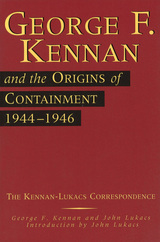
In 1945 the United States saw the Soviet Union as its principal ally. By 1947, it saw the Soviet Union as its principal opponent. How did this happen? Historian John Lukacs has provided an answer to this question through an exchange of letters with George F. Kennan. Their correspondence deals with the antecedents of containment between 1944 and 1946, during most of which time Kennan was at the American embassy in Moscow.
Kennan had strong opinions about America's appropriate role during and after World War II and is perhaps best known as the architect of America's containment policy. Much has been written about Kennan and containment, but relatively little is known about the events that made him compose and send the Long Telegram in 1946 that ultimately became the draft for foreign policy dealing with the Soviets in the following forty years.
These letters show Kennan's fear of the extent to which the United States misunderstood the Soviet regime. Especially in 1944, at the time of the Russians' betrayal of the Warsaw Uprising, it became evident that the Soviets were interested in establishing their rigid domination of Eastern and Central Europe and dividing the continent.
Kennan's letters to Lukacs are thorough and detailed, suggesting that the Truman administration was not in the least premature in opposing the Soviet Union. Indeed, both correspondents suggest that these decisions should have been made earlier. This series of letters will add greatly to our understanding of what preceded containment and the Cold War in 1947.

In 2007 Georgetown University established the CyberProject under the auspices of the Institute for Law, Science & Global Security. The CyberProject seeks to hone the Institute’s resources to help policymakers develop a greater understanding of current international cybersecurity issues. On 10 April 2012, the Institute held its second annual international cyber conference entitled, “International Engagement on Cyber: Establishing International Norms & Improved Cyber Security.” Under the direction of the CyberProject and the Institute, we have devoted this second annual special issue of the Georgetown Journal of International Affairs to cyber exclusively, and the challenges that societies face as they seek to establish norms of behavior so all may coexist peacefully in this domain. In the pages that follow, participants from the Institute’s second international cyber conference and other leaders, domestic and foreign, lay out their visions for protecting cyberspace and maintaining its stability.
The Georgetown Journal of International Affairs is the official publication of the Edmund A. Walsh School of Foreign Service at Georgetown University. Each issue of the journal provides readers with a diverse array of timely, peer-reviewed content penned by top policymakers, business leaders, and academic luminaries. Annual peer reviewed ‘special editions’ feature collected academic analysis on rapidly changing domains within the arena of international affairs, including the International Engagement on Cyber series.

A great deal has transpired in the cyber realm during the past year. These events, particularly the Snowden Affair, have drastically shaped the debate over state power projection and its consequences. Global public discourse previously tended to center upon the Internet as a democratizing force, capable of weakening the control of the nation-state. The Internet transcended national borders and empowered the masses at the expense of traditional power blocks. However, this battle for the control of cyberspace is far from over. The nation-state is attempting to retrench its power in the digital realm, and the forces of centralization are appearing to gain strength in the struggle between diffusion and consolidation. This shift has raised serious questions regarding the responsibilities and limits of government cyber control. State Building on a New Frontier—the third edition of our annual International Engagement on Cyber series—attempts to explore some of these difficult themes. This edition also features articles that deal with the technical side of the cyber discussion, namely attempts to create appropriate standards for continuing infrastructure development.
The Georgetown Journal of International Affairs is the official publication of the Edmund A. Walsh School of Foreign Service at Georgetown University. Each issue of the journal provides readers with a diverse array of timely, peer-reviewed content penned by top policymakers, business leaders, and academic luminaries. Annual peer reviewed ‘special editions’ feature collected academic analysis on rapidly changing domains within the arena of international affairs, including the International Engagement on Cyber series.
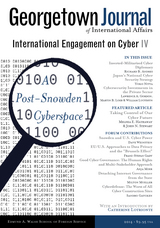
Each spring, the Cyber Project at Georgetown University’s Institute for Law, Science, and Global Security convenes a conference of leading international experts from academia, the private sector, and government to address cutting-edge issues in cybersecurity.
This issue begins with a group of articles under the theme A Post-Snowden Cyberspace, describing how Edward Snowden’s revelations directly or indirectly changed the way the global community understands cybersecurity and cyber law. Other topics covered include cyber weapons, cyber deterrence, Japan’s cybersecurity strategy, data protection in the private sector, executive accountability for data breaches, minimum security standards for connected devices, and the problem of underinvestment in cybersecurity.
Please note, this special issue is not included in the subscription to the journal.
The Georgetown Journal of International Affairs is the official publication of the Edmund A. Walsh School of Foreign Service at Georgetown University. Each issue of the journal provides readers with a diverse array of timely, peer-reviewed content penned by top policymakers, business leaders, and academic luminaries.

This fifth edition in the International Engagement on Cyber series focuses on securing critical infrastructure. The centrality of critical infrastructure in the Obama administration’s recent cybersecurity initiatives demonstrates the timeliness of this topic for greater review and scholarly input. In this manner, articles in this issue uncover the role and extent of international law and norms, public-private cooperation, as well as novel ways of conceptualizing ‘security’ in efforts to improve critical infrastructure cybersecurity. Other pieces provide case studies on the telecommunications, power, and energy sectors to generate an in-depth understanding of specific responses to security concerns in different infrastructure areas.
Additional contributions examine regulatory activities in cyberspace, the potential value of cryptocurrency, the evolution of cloud computing, cybersecurity in Brazil, as well as the integration of cyber in the military strategies of Russia, China, and the United States. The diversity of these topics demonstrates the Journal’s continued commitment to pursuing the myriad facets that compromise the field of cyber.
Please note, this special issue is not included in the subscription to the journal.
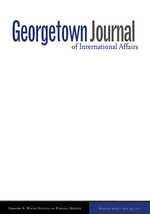
The Georgetown Journal of International Affairs has once again partnered with the Cyber Project at Georgetown University’s Institute for Law, Science, and Global Security to publish the sixth special issue of International Engagement on Cyber. This special issue of the journal seeks to uncover timely topics, broaden dialogue, and advance knowledge within the field of cyber. The articles are written by an international group of leading scholars, practitioners, and policymakers. The Forum of this issue evaluates the US Department of Defense’s 2015 Cyber Strategy and its efficacy in meeting cyber threats. Other topics covered in this issue include applying Just War Theory to the cyber capabilities of non-state actors including ISIS and Anonymous, litigating competing perspectives on the establishment of cyber norms, assessing tensions on the Korean peninsula in the cyber domain, and much more.
The Georgetown Journal of International Affairs is the official publication of the Edmund A. Walsh School of Foreign Service at Georgetown University. The journal was founded to serve as an academic resource for scholars, business leaders, policy makers, and students of international relations, cultivating a dialogue accessible to those with all levels of knowledge about foreign affairs and international politics. Each issue of the journal provides readers with a diverse array of timely, peer-reviewed content that bridges the gap between the work done by news outlets and that done by traditional academic journals.


The latest round of leadership changes at the IMF and the World Bank has generated increasingly intense criticism of the tacit Western hold on governance of these institutions. While this dynamic is indicative of global power adjustments, it also signals a paradigm shift in thought about issues and methodology of development and growth. John Maynard Keynes famously noted the influence economists exert on leaders as: “Practical men, who believe themselves to be quite exempt from any intellectual influence, are usually the slaves of some defunct economist.” Perhaps it is time, especially in the field of development, to question the traditional monopoly of economists, and to effectively include scientists, anthropologists, and others to provide collaborative thought leadership.
The Forum of this issue brings together leading policy makers, business professionals, and academics to evaluate the changing landscape of international development. New forms of assistance and greater connectivity among development stakeholders have reduced relevance of the traditional role of multilateral or bilateral agents of foreign aid and pillar organizations of the Washington Consensus. These bodies must adapt to an ever-changing world while being constrained by laws and bureaucratic processes. There is also a need to balance the perennial temptation of using official development assistance to promote national agenda with the interests of recipients. To deal with these and similar challenges effectively, the future lies in building networks of hybrid partnerships between governments, individuals, and other stakeholders in development.
The Georgetown Journal of International Affairs is the official publication of the Edmund A. Walsh School of Foreign Service at Georgetown University. Each issue of the journal provides readers with a diverse array of timely, peer-reviewed content penned by top policymakers, business leaders, and academic luminaries. The Journal takes a holistic approach to international affairs and features a ‘Forum’ that offers focused analysis on a specific key issue with each new edition of the publication, as well as nine regular sections: Books, Business & Economics, Conflict & Security, Culture & Society, Law & Ethics, A Look Back, Politics & Diplomacy, Science & Technology, and View from the Ground.

In 1950 six nations created the European Coal and Steel Community, laying the foundations for what would later become the European Union. Since then many other regions have integrated and the number of regional organizations has proliferated. Regional organizations are key actors in tackling tough problems, such as protecting human rights, preventing and resolving conflict, strengthening regional cooperation, and promoting economic growth.The purpose of this issue’s Forum, consisting of five articles, is to provide readers with a theoretical and practical overview of key aspects of regional integration and regional organizations. The first two articles provide a theoretical discussion on regional integration, while the following three articles present case studies on regional organizations – the Shanghai Cooperation Organization, the Arctic Council, and ASEAN. These pieces are summarized in Piero Graglia’s introduction. Other contributions to this issue include articles about self-defense groups in Mexico, reconstruction efforts in Afghanistan after the 2014 withdrawal, the Chinese middle class, and Scotland’s referendum on independence. The issue also features interviews with Ambassador Joseph D. Stafford III on his experience in the U.S. Embassy in Tehran during the hostage crisis, Professor Joseph S. Nye on American leadership, and Ambassador-at-Large Melanne Verveer on global women’s issues. In selecting the topics for this issue we have reached beyond the headlines in an effort to explore tough and persistent global problems.
The Georgetown Journal of International Affairs is the official publication of the Edmund A. Walsh School of Foreign Service at Georgetown University. Each issue of the journal provides readers with a diverse array of timely, peer-reviewed content penned by top policymakers, business leaders, and academic luminaries. The Journal takes a holistic approach to international affairs and features a ‘Forum’ that offers focused analysis on a specific key issue with each new edition of the publication, as well as nine regular sections: Books, Business & Economics, Conflict & Security, Culture & Society, Law & Ethics, A Look Back, Politics & Diplomacy, Science & Technology, and View from the Ground.

According to the United Nations, 9.6 billion people will inhabit our planet by 2050. Population growth and movement will have an enormous impact on global dynamics in the twenty-first century, in both the developing world as well as in advanced industrialized societies. In light of this global demographic reality, this issue of the Georgetown Journal of International Affairs focuses on the topic of “Destabilizing Demographics,” exploring the opportunities and challenges presented by dynamic population patterns and structures. Demographic shifts affect multiple facets of international affairs, impacting economies, modifying politics, and reshaping the fabric of our societies. These changes could have catastrophic international consequences if ignored or evaded. However, as this issue’s Forum demonstrates, the future holds promise for those who choose to reorganize on the cusp of significant population transformation. Adaptation as a form of mitigation must be informed by diverse solutions and multi-sectoral cooperation. Consider, for example, the intersection of family planning and climate change, or the connection between gender gaps and crime. Through pragmatic policymaking and international collaboration, seismic demographic change may not necessitate disaster. We round out this issue with articles regarding decidedly twenty-first century concerns: communication, integration, and globalization. Moha Ennaji describes the challenges of Berber language incorporation in Morocco and its significance to democratic reform. Dan Saxon examines the role of human judgment in semi-autonomous weapons use, questioning the ethics of unmanned machines. Andrés Monroy-Hernández and Luis Daniel Palacios analyze the utility, efficacy, and implications of citizen journalism within Mexico’s ongoing drug war. And Lawrence Gostin and Alexandra Phelan explore how, in an increasingly interconnected world, the international community can collectively prevent and control the spread of infectious diseases.
The Georgetown Journal of International Affairs is the official publication of the Edmund A. Walsh School of Foreign Service at Georgetown University. Each issue of the journal provides readers with a diverse array of timely, peer-reviewed content penned by top policymakers, business leaders, and academic luminaries. The Journal takes a holistic approach to international affairs and features a ‘Forum’ that offers focused analysis on a specific key issue with each new edition of the publication, as well as nine regular sections: Books, Business & Economics, Conflict & Security, Culture & Society, Law & Ethics, A Look Back, Politics & Diplomacy, Science & Technology, and View from the Ground.
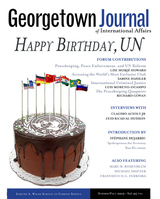
The Georgetown Journal of International Affairs is the official publication of the Edmund A. Walsh School of Foreign Service at Georgetown University. Each issue of the journal provides readers with a diverse array of timely, peer-reviewed content penned by top policymakers, business leaders, and academic luminaries.
The theme of this issue will be a look at the United Nations past, present, and future, to commemorate its 70th anniversary. The secondary theme will be global development.

The Georgetown Journal of International Affairs is the official publication of the Edmund A. Walsh School of Foreign Service at Georgetown University. Each issue of the journal provides readers with a diverse array of timely, peer-reviewed content penned by top policymakers, business leaders, and academic luminaries.

The Georgetown Journal of International Affairs is the official publication of the Edmund A. Walsh School of Foreign Service at Georgetown University. Founded to serve as an academic resource for scholars, business leaders, policymakers, and students of international relations alike, the journal cultivates a dialogue accessible to those with varying levels of knowledge about foreign affairs and international politics.

The international system and the individual nation states that comprise it face crucial decisions regarding both the means and methods employed to supply energy to the globe’s seven billion human inhabitants. Indeed, there are few issues of public policy with as far-reaching implications as those related to energy production, consumption, distribution, and conservation. The extent to which fluctuations in price and supply of this diverse group of resources can have a dramatic impact upon the industry and livelihood of the entire global population cannot be overstated. The Future of Energy seeks to serve as a primer for increasing public dialogue about this incredibly important topic, presenting a diverse array of arguments on issues spanning the gamut of relevance to the current global schema. Resource policies greatly impact the international sphere in economic, political, social, and security contexts and this issue will attempt to demonstrate how these fields of study and practice collide when energy is concerned.
The Georgetown Journal of International Affairs is the official publication of the Edmund A. Walsh School of Foreign Service at Georgetown University. Each issue of the journal provides readers with a diverse array of timely, peer-reviewed content penned by top policymakers, business leaders, and academic luminaries. The Journal takes a holistic approach to international affairs and features a ‘Forum’ that offers focused analysis on a specific key issue with each new edition of the publication, as well as nine regular sections: Books, Business & Economics, Conflict & Security, Culture & Society, Law & Ethics, A Look Back, Politics & Diplomacy, Science & Technology, and View from the Ground.

This issue of the Georgetown Journal of International Affairs focuses on the topic of “Social Media & Social Activism.” While the jury is still out on the degree to which social media has impacted traditional activism, these evolving technologies undoubtedly have transformed modern social movements. Still, we do not wish to suggest that the causal link follows only one direction. Indeed, it will be interesting to observe what future effects social activism will have on the information technology industry as it grapples with the increasing complexities associated with doing business globally—across cultures and government types—in a sector where national laws differ greatly and where international norms are ill-defined or nonexistent. This issue’s Forum considers responses taken and methods employed by major stakeholders, from grassroots activists to state governments to multinational information technology companies.
The Georgetown Journal of International Affairs is the official publication of the Edmund A. Walsh School of Foreign Service at Georgetown University. Each issue of the journal provides readers with a diverse array of timely, peer-reviewed content penned by top policymakers, business leaders, and academic luminaries. The Journal takes a holistic approach to international affairs and features a ‘Forum’ that offers focused analysis on a specific key issue with each new edition of the publication, as well as nine regular sections: Books, Business & Economics, Conflict & Security, Culture & Society, Law & Ethics, A Look Back, Politics & Diplomacy, Science & Technology, and View from the Ground.

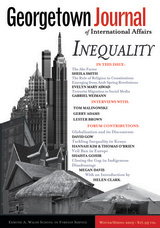
The Georgetown Journal of International Affairs is the official publication of the Edmund A. Walsh School of Foreign Service at Georgetown University. Each issue of the journal provides readers with a diverse array of timely, peer-reviewed content penned by top policymakers, business leaders, and academic luminaries. The Journal takes a holistic approach to international affairs and features a ‘Forum’ that offers focused analysis on a specific key issue with each new edition of the publication, as well as nine regular sections: Books, Business & Economics, Conflict & Security, Culture & Society, Law & Ethics, A Look Back, Politics & Diplomacy, Science & Technology, and View from the Ground.

The Georgetown Journal of International Affairs is the official publication of the Edmund A. Walsh School of Foreign Service at Georgetown University. Each issue of the journal provides readers with a diverse array of timely, peer-reviewed content penned by top policymakers, business leaders, and academic luminaries.
In this issue, the Forum section addresses the plight of international refugees, questions about migration and cultural integration, and assylum policy. Other topics addressed in this issue include US-Iran relations, corruption in Indonesia, Chinese direct investment in Africa, and much more.

The Georgetown Journal of International Affairs is the official publication of the Edmund A. Walsh School of Foreign Service at Georgetown University. Founded to serve as an academic resource for scholars, business leaders, policymakers, and students of international relations alike, the journal cultivates a dialogue accessible to those with varying levels of knowledge about foreign affairs and international politics. Each volume year the journal provides readers with three issues featuring an array of timely, peer-reviewed content that bridges the gap between the work performed by news outlets and that by more traditional academic journals. The first two issues feature a section titled "Forum" that offers focused analysis on a specific key issue, as well as eight regular sections: Books, Business & Economics, Conflict & Security, Culture & Society, Dialogues, Law & Ethics, Politics & Diplomacy, and Science & Technology. The third is a special issue, International Engagement on Cyber. Issue 18.1’s Forum theme is the "global commons," with articles on the Internet as a global public good, the implications of military and security uses of outer space, and international water management challenges.

The 2008 Ossetia War underlined the fact that Georgia is caught in a political struggle between East and West. Per Gahrton analyses American and Russian policy towards the country and provides a firsthand account of the Rose Revolution of 2003, its origin and aftermath.
The book traces the increasing US involvement in Georgia and the Russian reaction of anger, sanctions and, eventually, invasion. Gahrton's analysis is based on interviews with key politicians and his experience as the rapporteur of the European Parliament on South Caucasus. At centre stage is the growing opposition against authoritarian aspects of President Mikheil Saakashvili’s regime and the mysterious death of Prime Minister Zhvania in 2005. The book also asks if the Rose Revolution was a conspiracy or a genuine popular uprising.
This truly authoritative account of Georgia is a must for students studying international relations in the aftermath of The Cold War.

The contributions presented here include Fredric Jameson’s “Ramblings in Old Berlin,” Günter Grass’s “Lonesome Capitalism,” and Peter Weiss’s “Aesthetics of Resistance.” Among the topics discussed in the volume are the debate over Holocaust memorials in Germany and the significance of their connections to the German past, the problematic continuity that identifies the new unified Germany with the former Federal Republic; the dangers to women posed by the neoliberal project; the legacy of the avant-garde in today’s media theory; Ars nova and Doktor Faustus; nostalgia for the old German Democratic Republic; and reflections on traumatic memory and history as trauma.
Contributors. Ulrich Baer, Michael Geyer, Günter Grass, Frigga Haug, Julia Hell, Fredric Jameson, Juliet Koss, Andreas Michel, Martin Morris, Arkady Plotnitsky, Pierra Vidal-Naquet, Peter Weiss, James E. Young
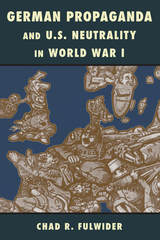
In the fading evening light of August 4, 1914, Great Britain’s H.M.S. Telconia set off on a mission to sever the five transatlantic cables linking Germany and the United States. Thus Britain launched its first attack of World War I and simultaneously commenced what became the war’s most decisive battle: the battle for American public opinion.
In this revealing study, Chad Fulwider analyzes the efforts undertaken by German organizations, including the German Foreign Ministry, to keep the United States out of the war. Utilizing archival records, newspapers, and “official” propaganda, the book also assesses the cultural impact of Germany’s political mission within the United States and comments upon the perception of American life in Europe during the early twentieth century.

Using documents only recently available, this pioneering book explores the interaction of German, British, French, and American policy at a time when the great depression and the growing political power of the Nazis had created a European crisis—the only such crisis between 1910 and 1941 in which the United States played a leading role.
The author uses contemporary records to rectify the later accounts of such participants as Herbert Hoover, Julius Curtius, and Paul Schmidt. He describes the negotiations of the major powers arising out of the Austro-German plans for a customs union, and relates this problem to the question of terminating reparations and war debts. He shows how the Governor of the Bank of England directed British foreign policy into bitter opposition to France and how the German government sought to exploit the German private debt to Wall Street.
Edward Bennett comes to the conclusion that the Brüning government, contrary to widely held opinion, received fully as much help as it deserved, while the Western powers were already showing the disunity and irresponsibility which proved so disastrous in later years. Although primarily a diplomatic history, this book also offers fresh information on pre-Hitler Germany, MacDonald's Britain, the Hoover administration, and the early career of Pierre Laval.
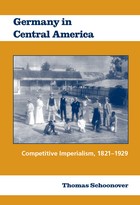
Analyzes the German role in Central American domestic and international relations
Using previously untapped resources including private collections, the records of cultural institutions, and federal and state government archives, Schoonover analyzes the German role in Central American domestic and international relations.Of the four countries most active in independent Central America-Britain, the United States, France, and Germany- historians know the least about the full extent of the involvement of the Germans.German colonial expansion was based on its position as an industrialized state seeking economic well-being and security in a growing world market. German leaders were quick to recognize that ties to the cheap labor of overseas countries could compensate for some of the costs and burdens of conceding material and social privileges to their domestic labor force. The Central American societies possessed limited resource bases; smaller and poorly educated populations; and less capital, communications, and technological development than Germany. They saw the borrowing of development as a key to their social, economic, and political progress. Wary Central American leaders also saw the influx of German industrialists as assurance against excessive U.S. presence in their political economies and cultures.
Although the simplistic bargain to trade economic development for cheap labor appeared to succeed in the short term, complex issues of German domestic unemployment and social disorder filtered to Central American countries and added to their own burdens. By 1929, Germany had recovered most of its pre-World War I economic position.
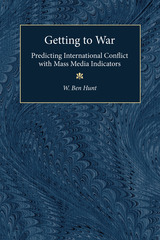
The goal here is the identification of leading indicators of war. Getting to War develops such a leading political indicator by a systematic examination of the ways in which governments influence domestic and international information flows. Regardless of the relative openness of the media system in question, we can accurately gauge the underlying intentions of those governments by a systematic analysis of opinion-leading articles in the mass media. This analysis allows us to predict both the likelihood of conflict and what form of conflict--military or diplomatic/economic--will occur.
Theoretically, this book builds on a forty-year-old insight by Karl Deutsch--that all governments seek to mobilize public opinion through mass media and that careful analysis of such domestic media activity could provide an "early warning network" of international conflict. By showing how to tap the link between conflict initiation and public support, this book provides both a useful tool for understanding crisis behavior as well as new theoretical insights on how domestic politics help drive foreign policy.
Getting to War will be of interest to political scientists who study international disputes and national security as well as social scientists interested in media studies and political communication. General readers with an interest in military or diplomatic history--particularly U.S. history--will find that Getting to War provides an entirely new perspective on how to understand wars and international crises.
W. Ben Hunt is Assistant Professor of Politics, New York University

Germany, which brutalized its neighbors in Europe for centuries, has mostly escaped the ghosts of the past, while Japan remains haunted in Asia. The most common explanation for this difference is that Germany knows better how to apologize; Japan is viewed as “impenitent.” Walter F. Hatch rejects the conventional wisdom and argues that Germany has achieved reconciliation with neighbors by showing that it can be a trustworthy partner in regional institutions like the European Union and NATO; Japan has never been given that opportunity (by its dominant partner, the U.S.) to demonstrate such an ability to cooperate. This book rigorously defends the argument that political cooperation—not discourse or economic exchange—best explains Germany’s relative success and Japan’s relative failure in achieving reconciliation with neighbors brutalized by each regional power in the past. It uses paired case studies (Germany-France and Japan-South Korea; Germany-Poland and Japan-China) to gauge the effect of these competing variables on public opinion over time. With numerous charts, each of the four empirical chapters illustrates the powerful causal relationship between institution building and interstate reconciliation.
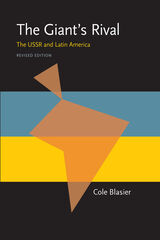
This revised edition includes chapters analyzing developments since 1983. Blasier views the origins of the Sandinista revolution, and its relation to international Communism, and how the Nicaraguan government has grown dependent on Soviet oil, arms, and economic and political assistance. He also describes the growing relations between the New Jewel Movement in Grenada and Moscow before it was toppled by the U.S. invasion. Blasier explains how U.S. policies have affected Soviet outcomes and makes proposals for protecting and advancing U.S. interests.
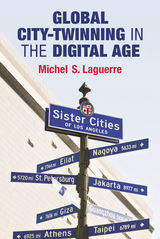
For many years, cities throughout the globe have developed ties with each other to process and nurture friendship, solidarity, and collaboration. These city relationships constitute a mode of governance distinct from those of cities that are not involved in such cross-border arrangements, with influence that expands far beyond region.
In this light, Global City-Twinning in the Digital Age unveils an analysis of intercity relationships both on a global scale and as a global phenomenon with digital communication technologies that play key roles in upgrading traditional practices, enhancing cross-border cooperation, and facilitating the production of digital sister cities. This book analyzes the deployment of sister-city formations and operations throughout the world with a focus on cities of North America, Latin America, North Africa, Europe, and the Mediterranean region. Using a global approach, it discusses friendship, entrepreneurship, urban development, cooperative management, municipal policy, and digital entanglements. It expands the scope of study of sister cities by unveiling the role of immigrants, diaspora, and post-diaspora in the making and functioning of the digital model of sister cities.
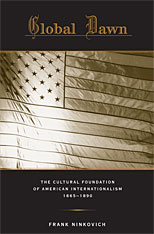
Why did the United States become a global power? Frank Ninkovich shows that a cultural predisposition for thinking in global terms blossomed in the late nineteenth century, making possible the rise to world power as American liberals of the time took a wide-ranging interest in the world. At the center of their attention was the historical process they called “civilization,” whose most prominent features—a global economy, political democracy, and a global culture—anticipated what would later come to be known as globalization.
The continued spread of civilization, they believed, provided the answer to worrisome contemporary problems such as the faltering progress of democracy, a burgeoning arms race in Europe, and a dangerous imperialist competition. In addition to transforming international politics, a global civilization quickened by commercial and cultural exchanges would advance human equality and introduce the modern industrial way of life to traditional societies. Consistent with their universalist outlook, liberal internationalists also took issue with scientific racism by refusing to acknowledge racial hierarchy as a permanent feature of relations with nonwhite peoples.
Of little practical significance during a period when isolationism reigned supreme in U.S. foreign policy, this rich body of thought would become the cultural foundation of twentieth-century American internationalism.
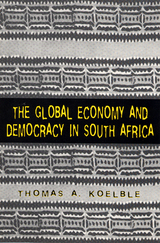
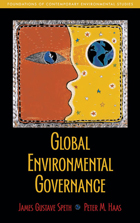
Global Environmental Governance offers the essential information, theory, and practical insight needed to tackle this critical challenge. It examines ten major environmental threats-climate disruption, biodiversity loss, acid rain, ozone depletion, deforestation, desertification, freshwater degradation and shortages, marine fisheries decline, toxic pollutants, and excess nitrogen-and explores how they can be addressed through treaties, governance regimes, and new forms of international cooperation.
Written by Gus Speth, one of the architects of the international environmental movement, and accomplished political scientist Peter M. Haas, Global Environmental Governance tells the story of how the community of nations, nongovernmental organizations, scientists, and multinational corporations have in recent decades created an unprecedented set of laws and institutions intended to help solve large-scale environmental problems. The book critically examines the serious shortcomings of current efforts and the underlying reasons why disturbing trends persist. It presents key concepts in international law and regime formation in simple, accessible language, and describes the current institutional landscape as well as lessons learned and new directions needed in international governance. Global Environmental Governance is a concise guide, with lists of key terms, study questions, and other features designed to help readers think about and understand the concepts discussed.
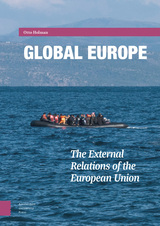

The goals of health and human security are fundamentally valued in all societies, yet the breadth of their interconnections are not properly understood. This volume explores the evolving relationship between health and security in today's interdependent world, and offers policy guidelines for global health action.
This volume underscores three basic principles. First, recent developments in the changing security landscape present enormous challenges for human security and global health. Second, although the connections between health and security are long-standing, the current context of new conflicts, pervasive poverty, and accelerating global flows has brought the fields closer together. Finally, a human security approach dependent upon individual and collective action can identify new strategies for meeting the goals of global health and security.
The distinguished contributions to this volume were commissioned by Harvard University's Global Equity Initiative, a research unit supporting the work of the International Commission on Human Security.

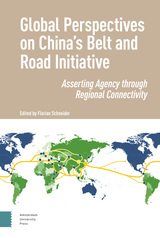
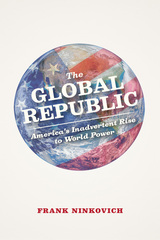
One of the preeminent intellectual historians of our time, Ninkovich delivers here his most ambitious and sweeping book to date. He argues that historically the United States has been driven not by a belief in its destiny or its special character but rather by a need to survive the forces of globalization. He builds the powerful case that American foreign policy has long been based on and entangled in questions of global engagement, while also showing that globalization itself has always been distinct from—and sometimes in direct conflict with—what we call international society.
In the second half of the twentieth century, the United States unexpectedly stumbled into the role of global policeman and was forced to find ways to resolve international conflicts that did not entail nuclear warfare. The United States's decisions were based less in notions of exceptionalism and more in a need to preserve and expand a flourishing global society that had become essential to the American way of life.
Sure to be controversial, The Global Republic compellingly and provocatively counters some of the deepest and most common misconceptions about America’s history and its place in the world.

Tracing the liberal state structure back to the closing stages of the English Civil War and settlement in North America, it argues that the rise of the English-speaking West has created rivalries between contender states that are never entirely put to rest. With each round of Western expansion, new rivalries are created.
Offering a truly global analysis that covers every area of the world - from Europe and America to China, the Middle East, Latin America and Russia -- he analyses the development of international relations post WWII, and questions whether the neoliberal project and its human rights ideology have collapsed back into authoritarianism under the guise of the 'war on terror'.

Nowhere is the conflict over rule setting more evident than in the simmering “standards wars” over the rules that define quality and enable the adjudication of disputes. In Global Rivalries, Amy A. Quark explores the questions of how rules are made, who makes them, and how they are enforced, using the lens of cotton—a simple commodity that has become a poignant symbol of both the crisis of Western rule making power and the potential for powerful new rivals to supplant it. Quark traces the strategies for influencing rule making processes employed not only by national governments but also by transnational corporations, fiber scientists, and trade associations from around the globe. Quark analyzes the efficacy of their approaches and the implications for more marginal actors in the cotton trade, including producers in West Africa.
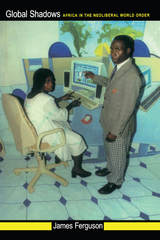
In Global Shadows the renowned anthropologist James Ferguson moves beyond the traditional anthropological focus on local communities to explore more general questions about Africa and its place in the contemporary world. Ferguson develops his argument through a series of provocative essays which open—as he shows they must—into interrogations of globalization, modernity, worldwide inequality, and social justice. He maintains that Africans in a variety of social and geographical locations increasingly seek to make claims of membership within a global community, claims that contest the marginalization that has so far been the principal fruit of “globalization” for Africa. Ferguson contends that such claims demand new understandings of the global, centered less on transnational flows and images of unfettered connection than on the social relations that selectively constitute global society and on the rights and obligations that characterize it.
Ferguson points out that anthropologists and others who have refused the category of Africa as empirically problematic have, in their devotion to particularity, allowed themselves to remain bystanders in the broader conversations about Africa. In Global Shadows, he urges fellow scholars into the arena, encouraging them to find a way to speak beyond the academy about Africa’s position within an egregiously imbalanced world order.
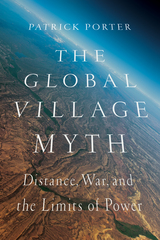
According to security elites, revolutions in information, transport, and weapons technologies have shrunk the world, leaving the United States and its allies more vulnerable than ever to violent threats like terrorism or cyberwar. As a result, they practice responses driven by fear: theories of falling dominoes, hysteria in place of sober debate, and an embrace of preemptive war to tame a chaotic world.
Patrick Porter challenges these ideas. In The Global Village Myth, he disputes globalism's claims and the outcomes that so often waste blood and treasure in the pursuit of an unattainable "total" security. Porter reexamines the notion of the endangered global village by examining Al-Qaeda's global guerilla movement, military tensions in the Taiwan Strait, and drones and cyberwar, two technologies often used by globalists to support their views. His critique exposes the folly of disastrous wars and the loss of civil liberties resulting from the globalist enterprise. Showing that technology expands rather than shrinks strategic space, Porter offers an alternative outlook to lead policymakers toward more sensible responses—and a wiser, more sustainable grand strategy.
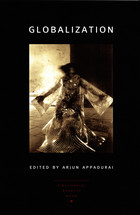
Seeking an alternative to the dead-end debate between those who see globalization as a phenomenon wholly without precedent and those who see it simply as modernization, imperialism, or global capitalism with a new face, the contributors seek to illuminate how space and time are transforming each other in special ways in the present era. They examine how this complex transformation involves changes in the situation of the nation, the state, and the city. While exploring distinct regions—China, Africa, South America, Europe—and representing different disciplines and genres—anthropology, literature, political science, sociology, music, cinema, photography—the contributors are concerned with both the political economy of location and the locations in which political economies are produced and transformed. A special strength of the collection is its concern with emergent styles of subjectivity, citizenship, and mobilization and with the transformations of state power through which market rationalities are distributed and embodied locally.
Contributors. Arjun Appadurai, Jean François Bayart, Jérôme Bindé, Néstor García Canclini, Leo Ching, Steven Feld, Ralf D. Hotchkiss, Wu Hung, Andreas Huyssen, Boubacar Touré Mandémory, Achille Mbembe, Philipe Rekacewicz, Saskia Sassen, Fatu Kande Senghor, Seteney Shami, Anna Tsing, Zhang Zhen
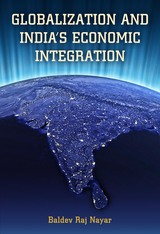
A common critique of globalization is that it causes economic segmentation and even disintegration of the national economy. Quite to the contrary, Baldev Raj Nayar provides a thorough empirical treatment of India’s political economy that challenges this critique by demonstrating that, on balance, both state and market have functioned to attenuate such a disintegrative impact and to accentuate economic integration. The active role of the Indian state in the areas of economic planning, fiscal federalism, and tax reform has resulted in improved economic integration and not increased segmentation. Similarly, his investigation of trade, investment, entrepreneurship, and migration suggests tendencies inherent in the market in favor of economic integration, especially when assisted by the state. While globalization has its benefits, such as higher economic growth, and costs, such as external shocks, Nayar’s findings show that India has benefited from globalization more than it has been victimized by it.
Globalization and India’s Economic Integration shows how globalization’s pressures favoring efficiency paradoxically induced the state to push for consolidation on a pan-Indian scale in the area of fiscal federalism and to advance the cause of the common market through reforming the indirect tax system; meanwhile, the state has pressed forward with social inclusiveness as never before in its economic planning. For another, the market, too, has been instrumental, because of its widened scope and its inherently expanding character, in strengthening economic integration through trade expansion, diffusion of industry, and increased inter-state migration. Nayar’s groundbreaking work will interest students, scholars, and specialists of India, South Asia, globalization, and political economy.
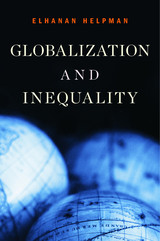
One of the world’s leading experts on international trade explains that we must look beyond globalization to explain rising inequality.
Globalization is not the primary cause of rising inequality. This may come as a surprise. Inequality within nations has risen steadily in recent decades, at a time when countries around the world have eased restrictions on the movement of goods, capital, and labor. Many assume a causal relationship, which has motivated opposition to policies that promote freer trade. Elhanan Helpman shows, however, in this timely study that this assumption about the effects of globalization is more myth than fact.
Globalization and Inequality guides us through two decades of research about the connections among international trade, offshoring, and changes in income, and shows that the overwhelming conclusion of contemporary research is that globalization is responsible for only a small rise in inequality. The chief causes remain difficult to pin down, though technological developments favoring highly skilled workers and changes in corporate and public policies are leading suspects. As Helpman makes clear, this does not mean that globalization creates no problems. Critics may be right to raise concerns about such matters as cultural autonomy, child labor, and domestic sovereignty. But if we wish to curb inequality while protecting what is best about an interconnected world, we must start with a clear view of what globalization does and does not do and look elsewhere to understand our troubling and growing divide.
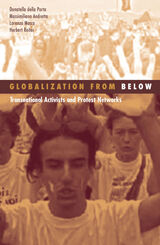
Presenting the first systematic empirical research on the global justice movement, Globalization from Below analyzes a movement from the viewpoints of the activists, organizers, and demonstrators themselves. The authors traveled to Genoa with anti-G8 protesters and collected data from more than 800 participants. A year later, they surveyed 2,400 activists at the European Social Forum in Florence. To understand how this cycle of global protest emerged, they examine the interactions between challengers and elites, and discuss how these new models of activism fit into current social movement work.
Globalization from Below places the protests within larger debates, revealing and investigating the forces that led to a clash between demonstrators and the Italian government, which responded with violence.
Donatella della Porta is professor of political science; Massimiliano Andretta is a researcher in political science and sociology; Lorenzo Mosca is a researcher in information and communication technologies; Herbert Reiter is a researcher in history, all at the European University Institute.

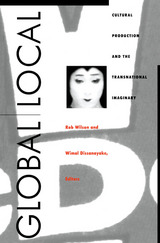
Ranging across issues involving film, literature, and theory, as well as history, politics, economics, sociology, and anthropology, these deeply interdisciplinary essays explore the interwoven forces of globalism and localism in a variety of cultural settings, with a particular emphasis on the Asia-Pacific region. Powerful readings of the new image culture, transnational film genre, and the politics of spectacle are offered as is a critique of globalization as the latest guise of colonization. Articles that unravel the complex links between the global and local in terms of the unfolding narrative of capital are joined by work that illuminates phenomena as diverse as "yellow cab" interracial sex in Japan, machinic desire in Robocop movies, and the Pacific Rim city. An interview with Fredric Jameson by Paik Nak-Chung on globalization and Pacific Rim responses is also featured, as is a critical afterword by Paul Bové.
Positioned at the crossroads of an altered global terrain, this volume, the first of its kind, analyzes the evolving transnational imaginary—the full scope of contemporary cultural production by which national identities of political allegiance and economic regulation are being undone, and in which imagined communities are being reshaped at both the global and local levels of everyday existence.

Border fixity—the proscription of foreign conquest and the annexation of homeland territory—has, since World War II, become a powerful norm in world politics. This development has been said to increase stability and peace in international relations. Yet, in a world in which it is unacceptable to challenge international borders by force, sociopolitically weak states remain a significant source of widespread conflict, war, and instability.
In this book, Boaz Atzili argues that the process of state building has long been influenced by external territorial pressures and competition, with the absence of border fixity contributing to the evolution of strong states—and its presence to the survival of weak ones. What results from this norm, he argues, are conditions that make internal conflict and the spillover of interstate war more likely. Using a comparison of historical and contemporary case studies, Atzili sheds light on the relationship between state weakness and conflict. His argument that under some circumstances an international norm that was established to preserve the peace may actually create conditions that are ripe for war is sure to generate debate and shed light on the dynamics of continuing conflict in the twenty-first century.
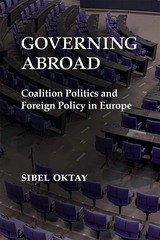
From Austria to New Zealand, coalition governments often pave the road to foreign policy. In Western Europe, nearly 90 percent of postwar governments include two or more political parties. Israel, the Middle East’s only consolidated democracy according to many, has never experienced single-party rule in its history. Even the United Kingdom, known for its long streak of single-party rule, now navigates multiparty cabinets. Coalitions are everywhere, but we still have little understanding of how they act in foreign affairs. History shows that coalitions can sometime engage in powerful international commitments such as participating in military operations, but at other times, they postpone their decisions, water down their policy positions, or promise to do less than they otherwise would. What explains these differences in behavior?
Governing Abroad unpacks the little-known world of coalition governments to find out. Oktay argues that the specific constellation of parties in government explains why some coalitions can make more assertive foreign policy decisions than others. Building on the rich literature in political science on coalitions, legislatures, and voting behavior, the book weaves together sophisticated statistical analyses of foreign policy events across thirty European countries alongside in-depth case studies from Denmark, the Netherlands, and Finland. It brings political parties back into the study of foreign policy, demonstrating that the size of the coalition, the ideological proximity of the governing parties, and their relationship with the parliamentary opposition together influence the government’s ability to act in the international arena. This book challenges our existing perceptions about the constraints and weaknesses of coalition governments. It sheds new light on the conditions that allow them to act decisively abroad.
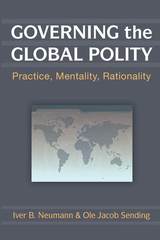
"There have been many attempts to adapt Foucault's arguments to the study of international relations, but this powerful and provocative book is the most sustained, and arguably the most successful in showing how the governmentality approach can be adapted to the analysis of global politics."
---Barry Hindess, Research School of Social Sciences, The Australian National University
A highly welcome and original contribution to contemporary debates on the shape and future of the international system and on the possibility of reconfiguring IR theory as social theory."
---Mathias Albert, Bielefeld University, Germany
"Iver Neumann and Ole Jacob Sending have put meat on the bones of Michel Foucault's notion of governmentality, fulfilling the hopes of long-famished students and scholars of global governance. Through their focus on specific case studies, the authors have provided a much-needed contribution to the international relations literature, one that is sure to become a staple of courses and seminars throughout the world."
---Ronnie D. Lipschutz, University of California, Santa Cruz
What does globalization mean for the principle of state sovereignty and for the power and functioning of states? Whereas realists assert the continued importance of states, constructivists contend that various political entities as well as the logic of globalization itself undermine state sovereignty.
Drawing on the state formation literature and on social theory, particularly the works of Weber and Foucault, Iver B. Neumann and Ole Jacob Sending question the terms of the realist-constructionist debate. Through detailed case studies, they demonstrate that states use nongovernmental organizations and international organizations indirectly to enforce social order and, ultimately, to increase their own power. At the same time, global politics is dominated by a liberal political rationality that states ignore at their peril. While states remain as strong as ever, they operate within a global polity of new hierarchies among states and between states and other actors.
Iver B. Neumann is Director of Research at the Norwegian Institute of International Affairs and Professor of Russian Studies at the University of Oslo.
Ole Jacob Sending is Senior Researcher at the Norwegian Institute of International Affairs, where he heads the Research Programme on Global Governance and International Organizations.
Cover art credit: © iStockphoto.com/Will Evans
Also available as an e-book.
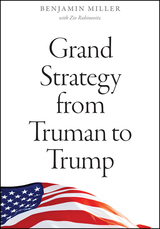
American foreign policy is the subject of extensive debate. Many look to domestic factors as the driving forces of bad policies. Benjamin Miller instead seeks to account for changes in US international strategy by developing a theory of grand strategy that captures the key security approaches available to US decision-makers in times of war and peace.
Grand Strategy from Truman to Trump makes a crucial contribution to our understanding of competing grand strategies that accounts for objectives and means of security policy. Miller puts forward a model that is widely applicable, based on empirical evidence from post-WWII to today, and shows that external factors—rather than internal concerns—are the most determinative.
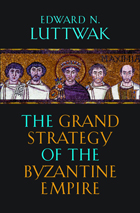
In this book, the distinguished writer Edward N. Luttwak presents the grand strategy of the eastern Roman empire we know as Byzantine, which lasted more than twice as long as the more familiar western Roman empire, eight hundred years by the shortest definition. This extraordinary endurance is all the more remarkable because the Byzantine empire was favored neither by geography nor by military preponderance. Yet it was the western empire that dissolved during the fifth century.
The Byzantine empire so greatly outlasted its western counterpart because its rulers were able to adapt strategically to diminished circumstances, by devising new ways of coping with successive enemies. It relied less on military strength and more on persuasion—to recruit allies, dissuade threatening neighbors, and manipulate potential enemies into attacking one another instead. Even when the Byzantines fought—which they often did with great skill—they were less inclined to destroy their enemies than to contain them, for they were aware that today’s enemies could be tomorrow’s allies. Born in the fifth century when the formidable threat of Attila’s Huns were deflected with a minimum of force, Byzantine strategy continued to be refined over the centuries, incidentally leaving for us several fascinating guidebooks to statecraft and war.
The Grand Strategy of the Byzantine Empire is a broad, interpretive account of Byzantine strategy, intelligence, and diplomacy over the course of eight centuries that will appeal to scholars, classicists, military history buffs, and professional soldiers.
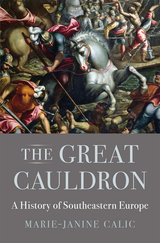
A sweeping history of southeastern Europe from antiquity to the present that reveals it to be a vibrant crossroads of trade, ideas, and religions.
We often think of the Balkans as a region beset by turmoil and backwardness, but from late antiquity to the present it has been a dynamic meeting place of cultures and religions. Combining deep insight with narrative flair, The Great Cauldron invites us to reconsider the history of this intriguing, diverse region as essential to the story of global Europe.
Marie-Janine Calic reveals the many ways in which southeastern Europe’s position at the crossroads of East and West shaped continental and global developments. The nascent merchant capitalism of the Mediterranean world helped the Balkan knights fight the Ottomans in the fifteenth century. The deep pull of nationalism led a young Serbian bookworm to spark the conflagration of World War I. The late twentieth century saw political Islam spread like wildfire in a region where Christians and Muslims had long lived side by side. Along with vivid snapshots of revealing moments in time, including Krujë in 1450 and Sarajevo in 1984, Calic introduces fascinating figures rarely found in standard European histories. We meet the Greek merchant and poet Rhigas Velestinlis, whose revolutionary pamphlet called for a general uprising against Ottoman tyranny in 1797. And the Croatian bishop Ivan Dominik Stratiko, who argued passionately for equality of the sexes and whose success with women astonished even his friend Casanova.
Calic’s ambitious reappraisal expands and deepens our understanding of the ever-changing mixture of peoples, faiths, and civilizations in this much-neglected nexus of empire.

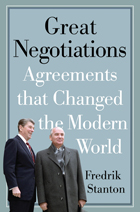
Lessons in Diplomacy from Colonial America to the Cold War
"In a time when negotiations, both great and small, continue to shape our world, this book provides an excellent opportunity to learn from the past and understand the present.”—Kofi Annan, Nobel Peace Prize Winner and former Secretary General of the United Nations
“A thought-provoking, informative book, highly recommended for all readers interested in international affairs.”—Library Journal
“For anyone with an interest in diplomacy and political history, Stanton's book is both entertaining and informative.” —Foreign Policy Watch
“Every professional concerned with dispute resolution and every student of negotiation has much to learn from Fredrik Stanton's lively stories of eight history-shaping negotiations.”—Robert H. Mnookin, Chair Program on Negotiation, Harvard Law School
“An excellent introduction into some of the great triumphs and failures of modern diplomacy.”—Seattle Post-Intelligencer
“An interesting, informative study well worth reading and pondering.” —American Diplomacy
“Stanton deftly illustrates that the power of haggling can easily rival that of any army or warhead.”—Roll Call
“Exhaustive research and careful thought have enabled Stanton to employ an extraordinary writing talent to produce a contribution to history and a source of enjoyable reading.”—New York Law Journal
“Stanton brings back to life both famous and some long forgotten personalities in the history of major American, European, and Asian negotiations. He persuasively makes his case for the importance of negotiators and negotiations both when wars can be kept from beginning and when wars end. He weaves in deft descriptions of the personal strengths and foibles of negotiators and homes in on the ability of the best to improvise when maneuvering on unfamiliar terrain.” —Ambassador Richard W. Murphy, Council on Foreign Relations
Words as much as weapons have shaped the course of history. Whether to avert, resolve, assist, or secure the outcome of a conflict, diplomacy in the modern age has had great triumphs and bitter failures, from the Cuban Missile Crisis in 1962, which narrowly spared humanity from a nuclear Armageddon, to the Treaty of Versailles after World War I, which created problems that still confront us today. Drawing on primary sources, transcripts, and interviews, Great Negotiations: Agreements that Changed the Modern World tells the stories of eight key episodes in modern diplomacy. From Benjamin Franklin securing crucial French support for the American revolution to Reagan and Gorbachev laying the groundwork to eliminate an entire class of nuclear weapons, Fredrik Stanton explains what each party brought to the negotiating table, the stakes, the obstacles to success, and how they were overcome.
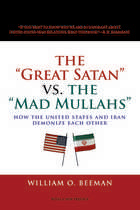
“William Beeman’s analysis of dissonant perceptions of Iran and the USA is compelling and important. . . . I am particularly grateful for this work.”—James Peacock, University of North Carolina at Chapel Hill
“[Beeman] is more interested in informing the reader than in impressing his peers. The other strength of the book lies in the author’s knowledge of Iranian history and culture. . . . It challenges the reader and forces him to question stereotypes about Iran and Washington’s perspective on the country.”—Abbas William Samii, Middle East Journal
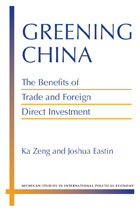
“The authors make some very critical interventions in this debate and scholars engaged in the environmental ‘pollution haven’ and ‘race to the bottom’ debates will need to take the arguments made here seriously, re-evaluating their own preferred theories to respond to the insightful theorizing and empirically rigorous testing that Zeng and Eastin present in the book.”
—Ronald Mitchell, University of Oregon
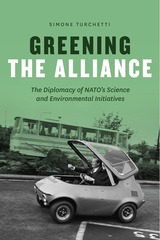
Drawing on previously unseen documents from NATO’s own archives, Simone Turchetti reveals how its investments were rooted in the alliance’s defense and surveillance needs, needs that led it to establish a program prioritizing environmental studies. A long-overlooked and effective diplomacy exercise, NATO’s “greening” at one point constituted the organization’s chief conduit for negotiating problematic relations between allies. But while Greening the Alliance explores this surprising coevolution of environmental monitoring and surveillance, tales of science advisers issuing instructions to bomb oil spills with napalm or Dr. Strangelove–like experts eager to divert the path of hurricanes with atomic weapons make it clear: the coexistence of these forces has not always been harmonious. Reflecting on this rich, complicated legacy in light of contemporary global challenges like climate change, Turchetti offers both an eye-opening history of international politics and environmental studies and a thoughtful assessment of NATO’s future.

By combining these different analyses, Greenland in Arctic Security provides new, theoretically informed discussions on how security politics can manifest across different scales and territorial borders. At times, these politics can have consequences beyond their original intent. With Greenland geopolitics and securitization theory of current interest to political and academic debates, this book offers timely insights for readers.
READERS
Browse our collection.
PUBLISHERS
See BiblioVault's publisher services.
STUDENT SERVICES
Files for college accessibility offices.
UChicago Accessibility Resources
home | accessibility | search | about | contact us
BiblioVault ® 2001 - 2024
The University of Chicago Press









